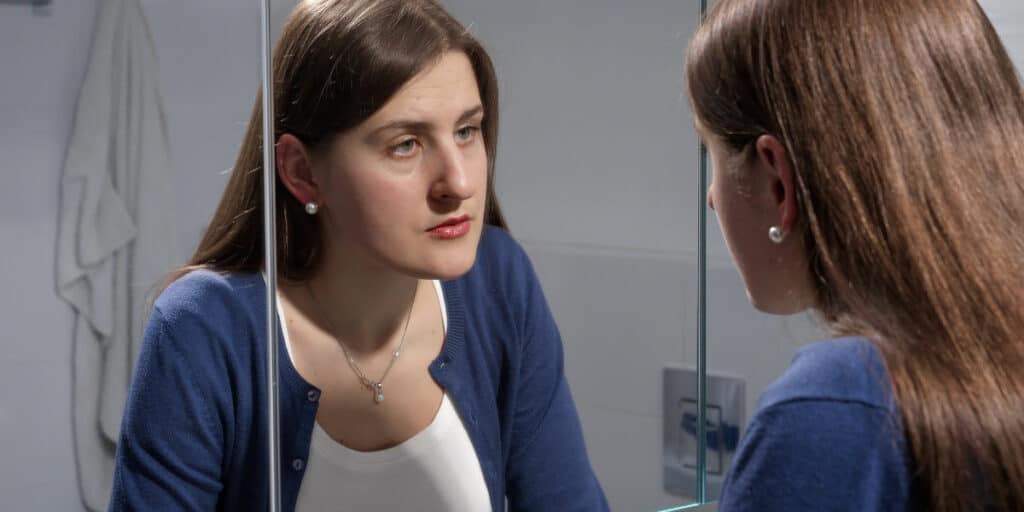Why Cosmetic Surgery Mental Health Screening Plays a Key Role for Long-Term Satisfaction
Why Cosmetic Surgery Mental Health Screening Plays a Key Role for Long-Term Satisfaction
Blog Article
How Emotional Assessments Enhance Cosmetic Surgery Outcomes
The assimilation of emotional evaluations into the plastic surgery process is increasingly identified as a critical aspect in achieving ideal results. By extensively reviewing clients' psychological and mental states, doctors can get useful insights right into their inspirations, assumptions, and potential emotional barriers. This thorough understanding not only informs surgical decisions but likewise cultivates a clear dialogue in between person and provider. As we discover the nuances of this technique, the ramifications for both individual contentment and lasting emotional wellness ended up being noticeable, raising essential concerns about its role fit the future of plastic surgery.
Recognizing Emotional Analyses
Emotional evaluations in the context of plastic surgery offer as critical tools to examine a patient's emotional and psychological preparedness for surgical intervention. These evaluations are designed to recognize underlying psychological conditions, such as body dysmorphic condition, anxiety, or anxiousness, which might affect a client's assumptions and fulfillment with surgical outcomes.
The process commonly includes organized interviews, standardized surveys, and scientific evaluations administered by experienced mental health and wellness experts. By systematically discovering a client's motivations for seeking cosmetic surgical treatment, these examinations help to discern whether the wish for surgery stems from practical self-improvement goals or from much deeper psychological concerns.
Additionally, psychological analyses can facilitate informed decision-making by making sure that clients totally understand the possible risks and benefits connected with aesthetic treatments. This understanding is vital for aligning person expectations with realistic end results, eventually adding to a more acceptable surgical experience.
Additionally, these analyses can identify people that may take advantage of preoperative emotional assistance or therapy, thus improving their total health. Thus, understanding psychological assessments is essential for maximizing both the psychological and medical end results of plastic surgery.

Advantages for Patients
The implementation of mental analyses in plastic surgery provides various advantages for patients, substantially boosting their general experience. To start with, these analyses give a structured chance for individuals to explore their motivations for looking for surgical treatment. Understanding their hidden wishes can promote more informed decision-making, reducing the chance of regret post-surgery.

Furthermore, emotional analyses can assist in far better communication in between individuals and their cosmetic surgeons. By articulating problems and desires more plainly, clients can establish sensible goals, resulting in a more acceptable surgical experience. These analyses can enhance patient-surgeon rapport, fostering count on and partnership throughout the surgical trip.
Impact on Surgical Results
Exactly how do emotional analyses influence medical outcomes in aesthetic treatments? Psychological evaluations serve as vital tools in recognizing people' mental health and wellness standing, expectations, and inspirations before surgical treatment. cosmetic surgery mental health screening. By evaluating elements such as body picture assumption and psychological health, these evaluations can anticipate how individuals will reply to aesthetic treatments
Research study suggests that clients with practical assumptions are more probable to report contentment post-surgery. Conversely, those with underlying mental problems, such as body dysmorphic problem, might experience frustration no matter of the step-by-step result. By determining these issues early, practitioners can take care of patient expectations efficiently and decrease the likelihood of difficulties or regret after surgical procedure.
Furthermore, mental analyses can boost the surgeon-patient partnership, cultivating open communication and depend on. This relationship is vital for making certain that individuals really feel comfortable reviewing their objectives and worries, eventually resulting in extra desirable medical outcomes.
Tailoring Surgical Approaches

As an example, an individual exhibiting indications of anxiousness might profit from a much more steady approach, possibly beginning with less intrusive procedures before proceeding to extra comprehensive surgical procedures. Conversely, individuals with a strong feeling of self and realistic expectations may be suitable prospects for more considerable treatments.
Furthermore, emotional assessments can assist determine patients that might require added assistance or counseling, specifically if their inspirations come from underlying mental issues. Customizing surgical approaches not only improves the technical implementation of the treatment yet also promotes a collective atmosphere between the specialist and person, leading to more satisfying end results. Eventually, this personalized method advertises a much deeper understanding of the client's special situations, resulting in a much more unified equilibrium between visual goals and psychological wellness, thereby maximizing the total cosmetic surgery experience.
Supporting Long-Term Satisfaction
To advertise long-term fulfillment in cosmetic surgery, it is important to develop sensible assumptions and foster open interaction between the specialist and person throughout the process. Emotional analyses work as a beneficial device in this regard, enabling doctors to gauge a patient's inspirations, desires, and prospective emotional end results. By comprehending an individual's mental and emotional state, surgeons can give customized referrals that line up with the client's true ambitions.
Additionally, participating in extensive conversations regarding the potential threats, advantages, and limitations of the procedure assists alleviate unrealistic assumptions. invasive surgery psychological screening. Clients that are educated are extra likely to appreciate the results, adding to higher contentment this content rates. Continual follow-up after the surgical procedure is additionally vital in strengthening the surgeon-patient connection and dealing with any kind of problems that might emerge during recuperation
Additionally, emotional assessments can identify patients that may be at risk for post-operative discontentment, permitting for preemptive treatments. Eventually, the assimilation of psychological evaluations right into the cosmetic surgery procedure not only improves medical end results but also promotes long-lasting satisfaction, guaranteeing that people really feel content with their decisions and results as time progresses.
Conclusion
In recap, psychological analyses act as a crucial component in improving cosmetic surgery results. By assessing individuals' mental and psychological preparedness, these assessments assist in the recognition of underlying psychological conditions and inspirations, leading to a lot more customized surgical techniques. Promoting open interaction in between cosmetic surgeons and individuals advertises sensible expectations and count on, inevitably contributing to boosted fulfillment and long-term psychological health following procedures. The integration of psychological evaluations into the surgery stands for a vital improvement in person treatment and end results.
The application of psychological analyses in cosmetic surgical procedure provides numerous advantages for individuals, considerably enhancing their total experience.Additionally, psychological analyses can assist identify people who might need additional assistance or therapy, especially if their motivations stem from underlying mental issues. Emotional assessments offer as a useful tool in this respect, making it possible for doctors to evaluate a person's motivations, needs, and prospective emotional outcomes. By recognizing a client's psychological and emotional state, specialists you could try here can provide tailored referrals that align with the individual's true goals.
By reviewing clients' psychological and emotional preparedness, these assessments assist in the recognition of underlying psychological conditions and inspirations, leading to more tailored surgical strategies.
Report this page